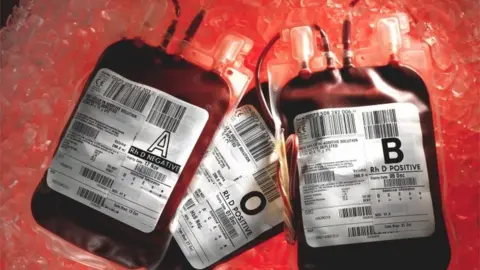Blood scandal inquiry 'will find any cover-up'
 PA
PAA UK-wide inquiry into a contaminated blood scandal that left at least 2,400 people dead will look at whether there was a cover-up by the authorities and if documents were destroyed.
Treatments including blood transfusions infected thousands of patients with HIV and hepatitis C in the 1970s and 1980s.
It has been called the worst treatment disaster in the history of the NHS.
The terms of reference have now been published by the judge chairing the public inquiry, Sir Brian Langstaff.
Truth will out
In a letter to the Minister for the Cabinet Office, David Lidington, Sir Brian said it would consider what had happened and why and the response of government and others.
Many of those affected and their families say they were not told of the risks involved. Patients in other countries were also infected.
It was revealed on Monday that the process of gathering evidence would begin this week and the inquiry would take between two and four years.
The first public hearings involving victims and their families will be in late September but the inquiry is likely then to hold private sessions until the new year.
Sir Brian said: "What is difficult to comprehend is the sheer scale of what happened.
"The numbers of people, both adults and children, from all walks of life, who were infected by Hepatitis viruses, or HIV, from clotting factor or transfused blood runs into thousands.
"At least as many more - including partners, children, parents, families, friends or carers - have been affected.
"This may have happened principally in the 1970s and 1980s but the consequences persist today with people continuing to feel the mental, physical, social, work-related and financial effects.
"Many of the people infected and their families have battled for years to understand what happened and how they have been treated since.
"I aim to put the people who have been infected and affected at the heart of this inquiry.
"I am determined to get to the truth and where necessary will use the inquiry's power to compel witnesses to explain their actions."
He urged people with knowledge or personal experience who might be able to help the inquiry to come forward.
Campaigners who have fought for decades for a full independent investigation welcomed the announcement by Sir Brian.
Jason Evans was just four years old when his father, Jonathan, a haemophiliac, died after being infected with HIV through a contaminated blood product.
He said he was "very happy with the terms of reference".
He added that the judge had "done a very good job and listened to what was said in meetings with campaigners".